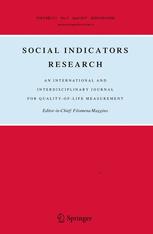
The trade-off between poverty reduction and carbon emissions, and the role of economic growth and inequality: an empirical cross-country analysis using a novel indicator
Malerba, DanieleExternal Publications (2020)
in: Social Indicators Research 448, article 012065
DOI: https://doi.org/10.1007/s11205-020-02332-9
Volltext/Document
Is it possible for countries to eradicate poverty while also meeting environmental goals? Despite the passage of international agreements calling for these issues to be addressed simultaneously, little is known about the direct relationship between them. This study addresses this gap by proposing a new and composite indicator that integrates measures for both poverty and environmental outcomes (carbon emissions) into a single variable, the carbon intensity of poverty reduction (CIPR). This variable defines the trade-off between the proportional changes of emissions per capita and of the share of the population above the poverty line. In parallel an analytic framework is developed to formulate propositions concerning the possible effects of growth and inequality on the CIPR. The propositions are tested empirically using data from 135 countries across a 30-year time period (1981–2012). The findings confirm that the carbon intensity of poverty reduction is heterogeneous across countries. This heterogeneity is partly explained by economic growth, which is found to have a negative effect on the CIPR up to a certain income level, defined here as a “turning point”. Above that turning point, economic growth increases the CIPR. By contrast, inequality reduction is shown to have a significant negative effect on the CIPR. This study contributes to the literature on sustainable development by analytically and quantitatively linking its three dimensions (social, economic and environmental) and by employing a composite indicator that directly measures the trade-off between poverty reduction and emission levels across countries.

